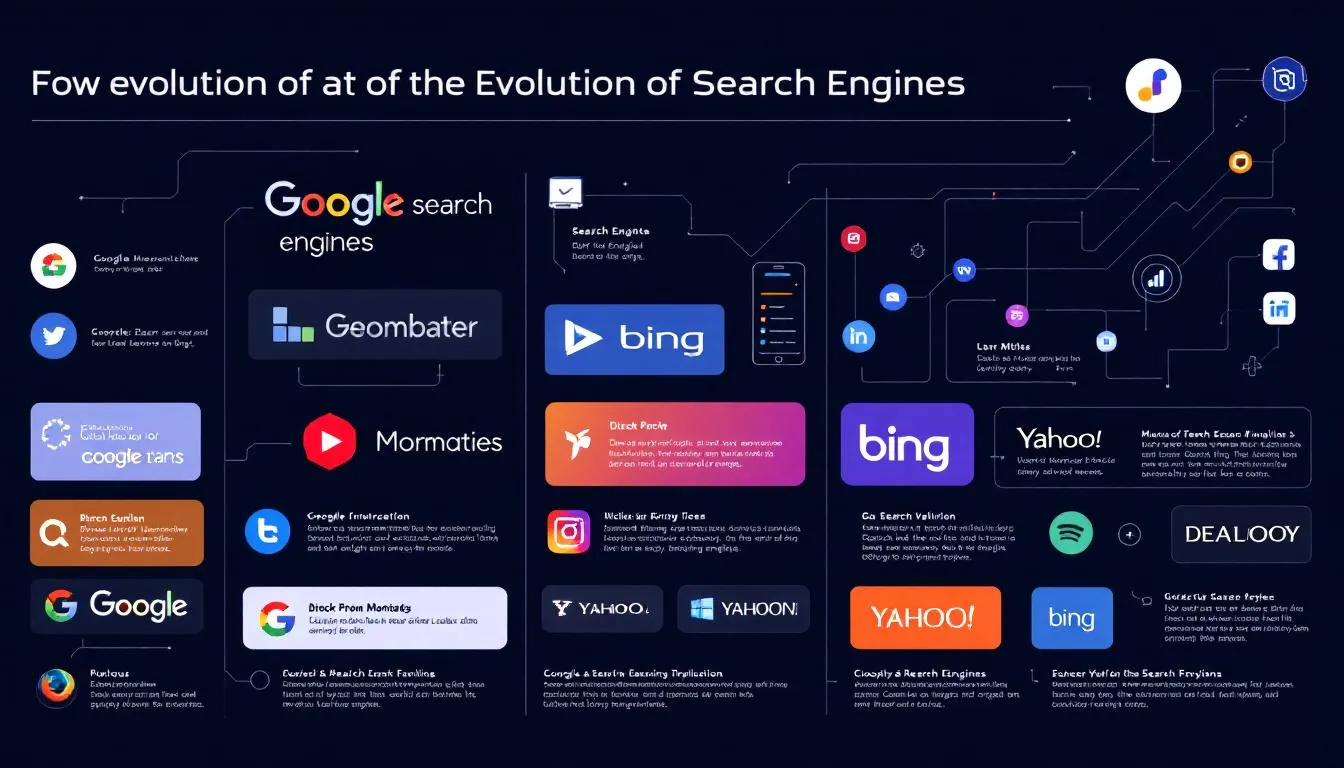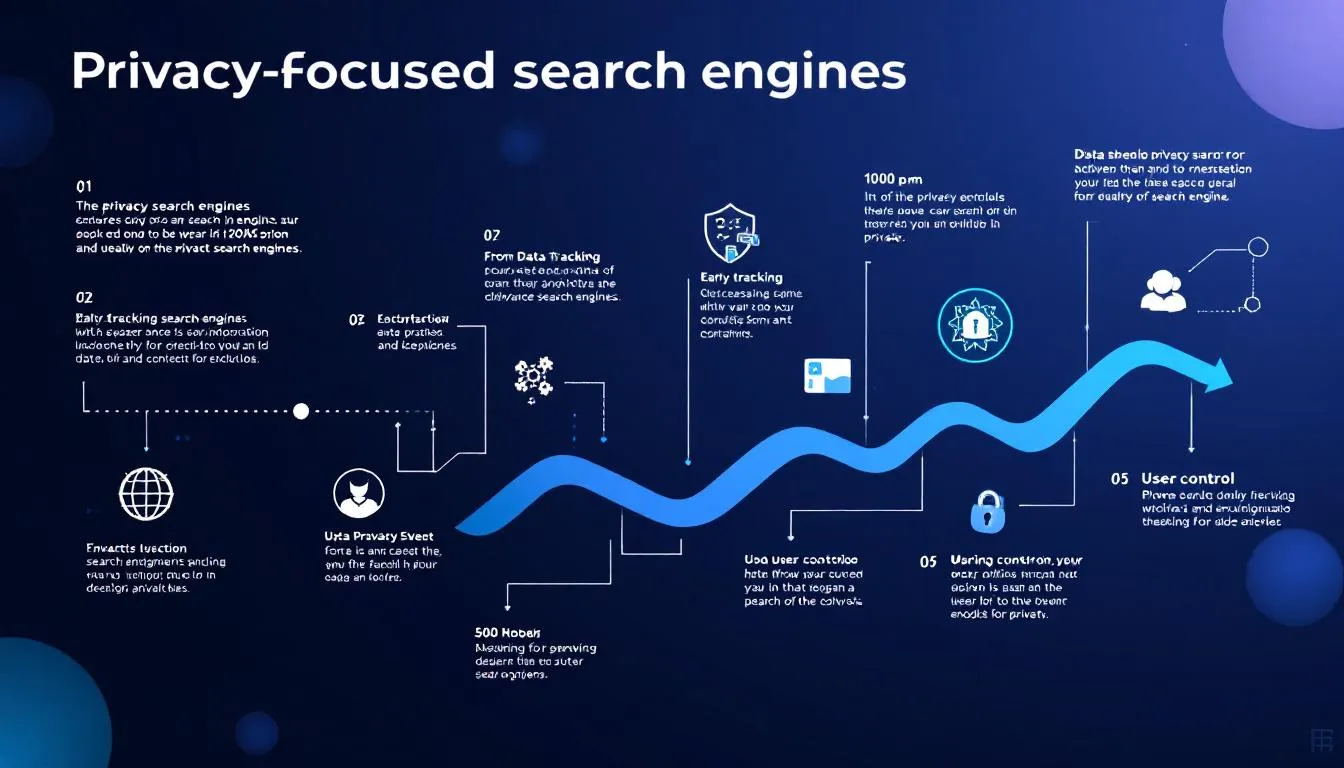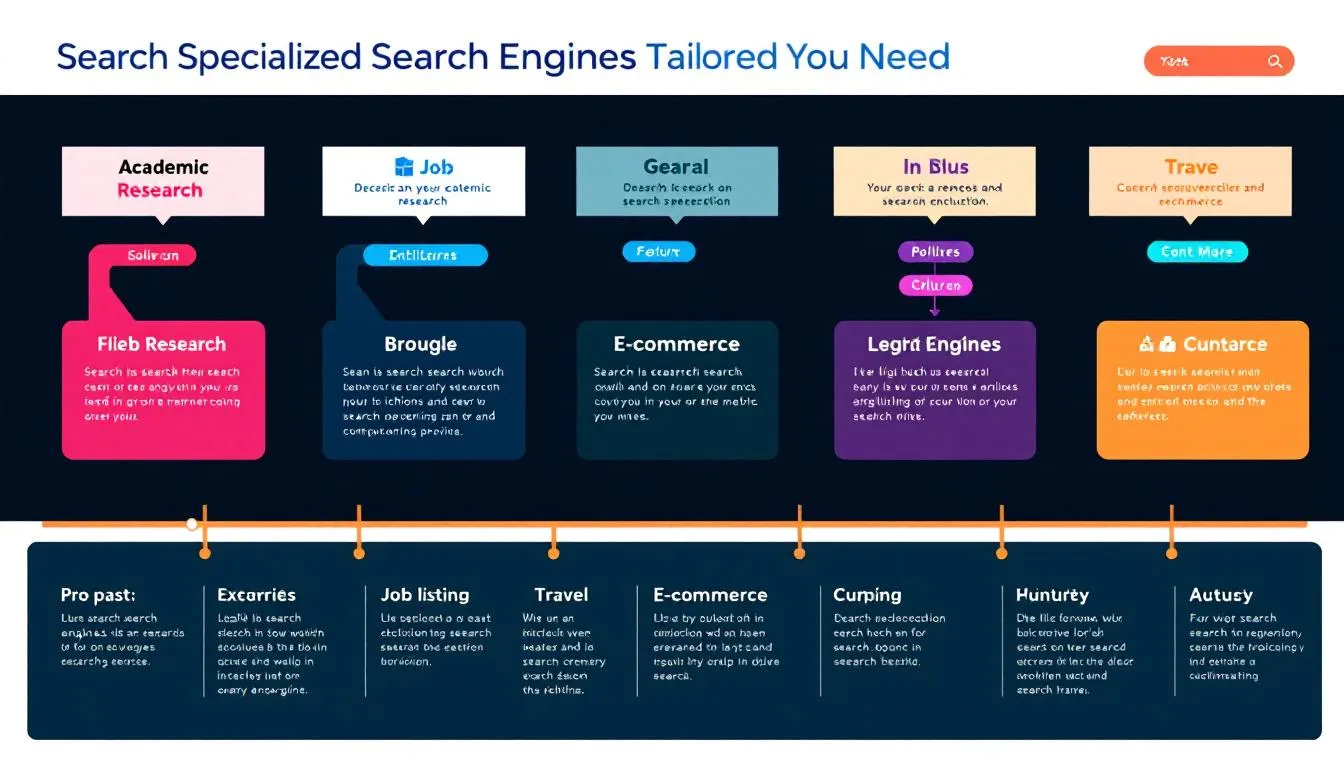Key Takeaways
- Search engines operate through a multi-step process of crawling, indexing, and ranking to provide users with relevant information quickly.
- Privacy-focused search engines like DuckDuckGo, Startpage, and Brave Search prioritize user privacy by avoiding trackers and minimizing data collection.
- AI-powered search engines, such as ChatGPT Search and You.com, leverage advanced algorithms to deliver more personalized and contextually accurate search results.
Understanding Search Engines

A search engine is a software system designed to help users locate information on the vast expanse of the internet. Indexing and cataloging content from various sources enables search engines to offer a structured database, helping users locate relevant web pages based on their search terms and queries.
This process significantly enhances the efficiency of locating specific information across the digital landscape, making it easier to access relevant answers to almost any query imaginable.
How Search Engines Work
Search engines deliver accurate and relevant results through a multi-step process involving crawling, indexing, and ranking. These steps ensure content is discovered, analyzed, and organized to provide users with optimal search results.
Let’s delve into each of these processes to understand how search engines work.
Crawling
Crawling is the initial step where a web crawler, also known as spiders, continuously explore the internet to find new and existing content by following hyperlinks. This constant discovery process ensures that search engines have the most up-to-date information, ready to be indexed and ranked for user queries.
Indexing
After content is discovered through crawling, it undergoes indexing, where its quality and relevance are evaluated before being stored in the search engine’s index, a vast library containing nearly every page.
The index is crucial for retrieving relevant search results quickly and efficiently.
Ranking
The final step is ranking the indexed pages using complex algorithms considering factors like content quality, relevance, and site performance. These algorithms determine search result order, with the most relevant and high-quality pages appearing higher on the search engine results pages (SERPs).
Popular Search Engines

Among the many search engines available, a few have established themselves as the most popular due to their extensive features and user base. Google, Bing, and Yahoo are the major players, dominating the market as the dominant search engine with their vast daily user numbers and comprehensive search capabilities, unlike other search engines.
Each offers unique features that cater to different user needs.
Google stands as the world’s leading search engine, with a market share of 89.73% as of December 2024. Despite a slight decline, it remains the go-to for over 1 billion daily active users. Google’s commitment to user security is evident through its encryption of all searches, adding a layer of protection to user queries.
Microsoft Bing
Launched by Microsoft in 2009, Bing has grown to attract 100 million daily active users as of 2023. Bing differentiates itself with superior image and visual search capabilities and offers comprehensive SEO documentation to support webmasters.
It focuses on specific search categories like shopping, travel, and health.
Yahoo!
Yahoo! Search, founded in 1995, maintains a market share of approximately 2.65% in the U.S. as of March 2025. Powered by Bing technology, Yahoo! provides a range of services in addition to search, including:
- Yahoo Mail
- Yahoo Finance
- Yahoo News
- Yahoo Sports.
Privacy-Focused Search Engines

Privacy-focused search engines are a response to growing concerns about personal data privacy. These engines prioritize user privacy by avoiding trackers and cookies, offering anonymous searching, and minimizing data collection. A privacy focused search engine can enhance user experience while safeguarding personal data.
DuckDuckGo, Startpage, and Brave Search are among the best options for those seeking enhanced privacy.
DuckDuckGo
DuckDuckGo’s commitment to privacy is evident as it does not track searches or collect user data. With features like tracker blocking, the Duck Player, and encrypted searches, DuckDuckGo owned ensures a clean and private search experience for its 100 million active monthly users while avoiding tracking users. Data protection is a core principle of their approach.
As of March 2025, it holds a 2.07% share of the U.S. search market.
Startpage
Startpage aggregates results from multiple engines while maintaining user privacy. Key features include:
- Delivering Google search results without personalization, ensuring anonymity
- Anonymous View, which prevents cookie collection
- A URL generator that allows users to browse websites anonymously
Brave Search
Brave Search operates independently from major search engines like Google or Bing. It focuses on user privacy by blocking trackers and fingerprinting methods, ensuring a highly private search experience.
Brave Search also creates its own index, providing unbiased search results.
AI-Powered Search Engines

AI-powered search engines leverage artificial intelligence to enhance search experiences by providing more relevant and personalized results. These engines, such as ChatGPT Search, Perplexity.ai, and You.com, use advanced algorithms to better understand user queries and deliver contextually accurate answers.
ChatGPT Search
Launched in October 2024, ChatGPT Search has quickly gained popularity with:
- 3.9 billion users monthly
- An AI Mode that enables users to conduct deeper explorations and comparisons
- Significant improvements in context handling and citation methods since its launch.
Perplexity.ai
Perplexity.ai offers a conversational interface with the following features:
- Allows users to engage in a more interactive search experience
- Remembers the context of initial queries
- Enables meaningful follow-up questions
- Supports deeper exploration of search results
You.com
Founded by Richard Socher, You.com provides a dual-mode search experience with the following features:
- Personal and private search settings
- Around 1.56 million monthly visitors
- Ensures user privacy by not recording telemetry data in private mode
- Offers tools like a Chrome extension for a seamless search experience
Specialized Search Engines

Specialized search engines focus on specific needs. They offer tailored results for particular fields or regions. These engines, such as WolframAlpha, LinkedIn, and the Wayback Machine, offer unique functionalities that serve specific user requirements, including a private search engine.
WolframAlpha
WolframAlpha, launched in 2009, functions as a computational knowledge engine, providing expert data across various domains. It uses its own algorithms and curated datasets to compute answers, with professional-grade features available for a subscription fee.
LinkedIn, with 1.7 billion monthly visits, is a leading platform for professional networking. Its search algorithm ranks profiles and organizations based on relevance and activity level, making it essential for users to optimize their profiles and links to rank higher effectively.
Wayback Machine
The Wayback Machine allows users to view archived web pages from various dates, making it a valuable tool for historical research and accessing previous versions of websites, including those stored in the internet archive. This functionality offers insights into how online content has evolved over time.
International Search Engines
International search engines focus on specific regions. They offer localized results that are tailored to reflect the local communities and culture. Baidu, Yandex, and Naver are prime example, each dominating their respective markets with tailored services and features.
Baidu
Baidu is the leading search engine in China, handling approximately 70% of all search queries with a market share of 51.45%. It offers various services such as maps, news, and an encyclopedia, enhancing user engagement.
Yandex
Yandex is the most popular search engine in Russia, attracting 63.9 million daily users and generating significant monthly traffic. It provides localized yandex search results for over 1,400 cities, enhancing its regional relevance.
For expert assistance on optimizing for Yandex, visit Good Solutions.
Naver
Known as the Korean Google, Naver holds a 47.14% market share in South Korea, with 75% of the population using it as of May 2023. A wide range of services is offered, including:
- blogs
- news
- music
- shopping
- and more.
Switching to Alternative Search Engines
Switching to an alternative search engine can be a straightforward process. Adjusting your web browser’s default search engine settings allows you to explore new options that might better meet your needs.
Exploring various search engines, whether driven by curiosity or a desire for enhanced privacy, can reveal unique features and benefits that are often searched.
The Benefits of Using Private Search Engines
Private search engines offer numerous advantages, including:
- Enhanced user privacy
- Fewer targeted ads
- No tracking of user behavior
- No creation of user profiles, ensuring unbiased and anonymous search experiences.
These engines provide a viable alternative to mainstream options unlike Google, making them appealing for privacy-conscious users.
Summary
Navigating the digital world requires tools that align with our values and needs. From understanding the intricacies of how search engines work to exploring popular, privacy-focused, AI-powered, specialized, and international options, this guide has provided a comprehensive look at the available choices. Whether you prioritize privacy, efficiency, or specialized results, there’s a search engine tailored to your needs. Embrace the journey of discovery and make informed choices to enhance your digital experience.
Frequently Asked Questions
What is a search engine and why is it important?
A search engine is essential for navigating the vast information available online, as it indexes and catalogs content, making it easier for users to find specific information quickly and efficiently. This functionality is crucial for both individuals and businesses seeking to access relevant data effectively.
How do search engines work?
Search engines operate through a multi-step process of crawling to discover content, indexing to organize it, and ranking to present results based on relevance and quality. This systematic approach ensures users find the most pertinent information efficiently.
What are some popular search engines?
Some popular search engines are Google, Microsoft Bing, and Yahoo. Each offers distinct features, with Google leading in market share.
Why should I consider using a privacy-focused search engine?
Using a privacy-focused search engine like DuckDuckGo or Startpage enhances your online privacy by preventing tracking and the collection of personal data, allowing for more secure and anonymous searches. This approach protects your information from advertisers and enhances your overall browsing experience.
How can I switch to an alternative search engine?
To switch to an alternative search engine, simply change your browser’s default search engine settings and take advantage of the unique features offered by your chosen option. This process is quick and enhances your search experience.
#BestSearchEngines #GoogleSearch #BingSearch #YahooSearch #PrivacySearch #DuckDuckGo #Startpage #BraveSearch #AISearch #ChatGPTSearch #PerplexityAI #YouDotCom #SpecializedSearch #WolframAlpha #LinkedInSearch #WaybackMachine #InternationalSearch #Baidu #Yandex #Naver #SearchEngines101 #CrawlingIndexingRanking #SearchPrivacy #AnonymousSearch #SearchWithoutTracking #AlternativeSearch #PrivateSearch #GoodSolutionsTech #DigitalPrivacy #OnlineSearch
